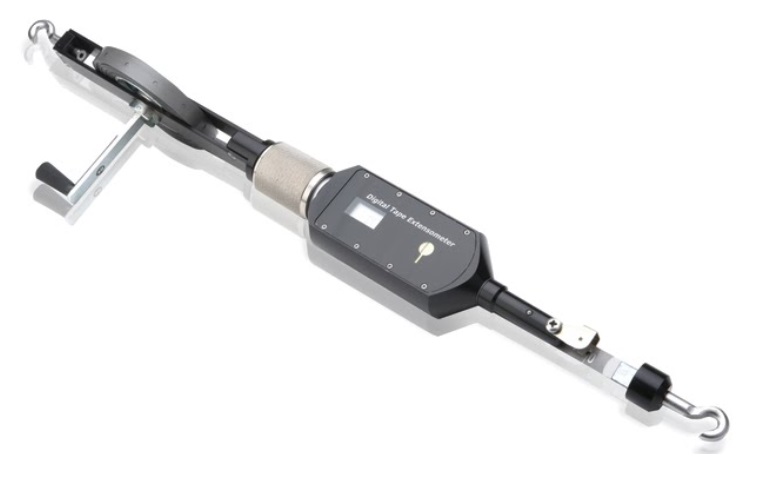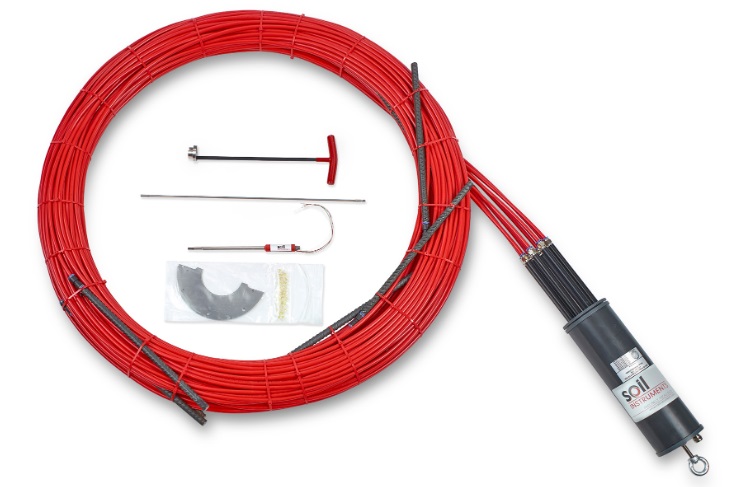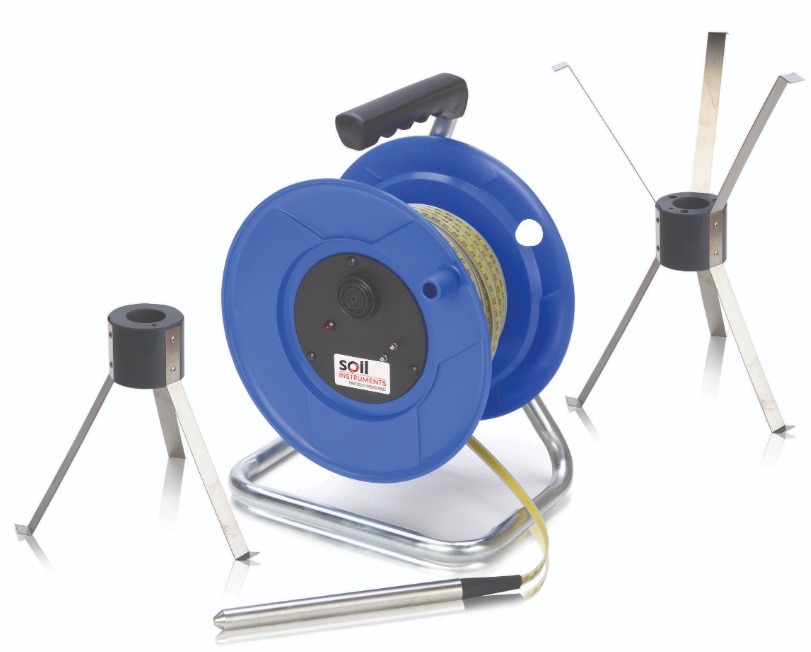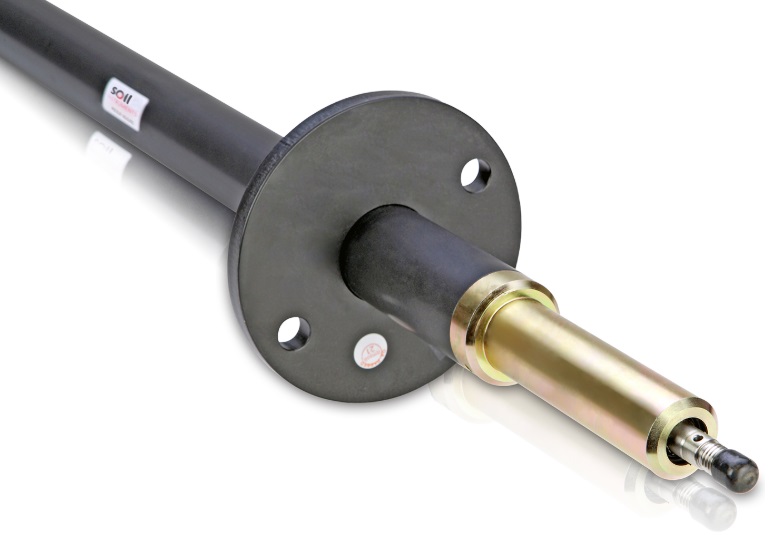EXTENSOMETERS
Extensometers are geotechnical instruments used to measure the displacement and deformation in soil, rock, and concrete structures. They are used in mining, tunnels, dams, and various civil engineering applications to monitor stability, identify potential risks, and ensure long-term safety.

Digital Tape Extensometer
The Digital Tape Extensometer is a portable device used for measuring the relative distances between pairs of reference points on the surfaces of structures including radial movements and convergence of tunnels, shafts, linings, and caverns, deformation of excavations in underground caverns, and displacements of retaining walls, cuttings, bridge piers, arches.

Rod Extensometer System
The Rod Extensometer system accurately measures settlement and/or heave at single or multiple anchor points in a borehole relative to its reference head. It employs up to eight rods, anchored along the axis of a borehole with a diameter from 50mm up to 200mm, terminating in the reference head at the borehole entrance..

Magnetic Probe Extensometer
The Soil Instruments Magnetic Probe Extensometer is used to monitor soil or rock settlement and heave in excavations, foundations, dams, embankments, tunnels, shafts, and sheet piles. Data from the extensometer indicate the depths at which settlement has occurred as well as the total amount of settlement.

Vibrating Wire Soil Extensometer
The Vibrating Wire Soil Extensometer measures lateral deformation of soil and rock, particularly in embankment dams and quarry or mining excavations.